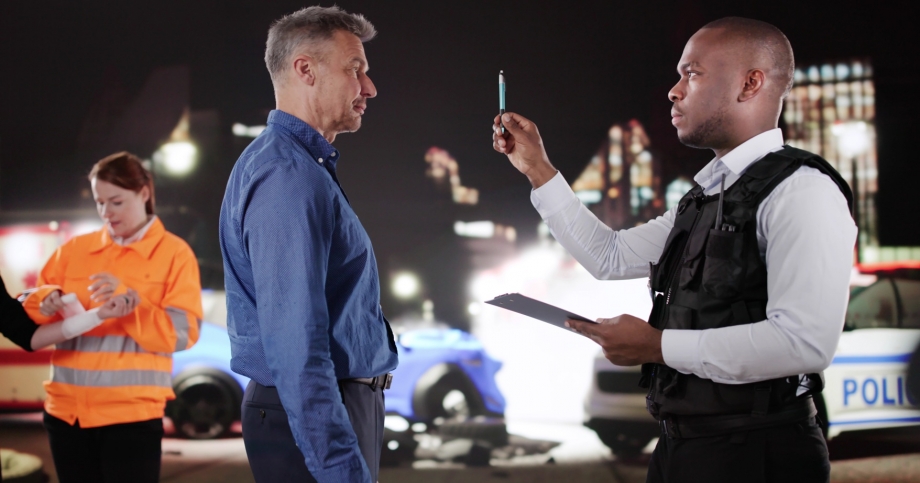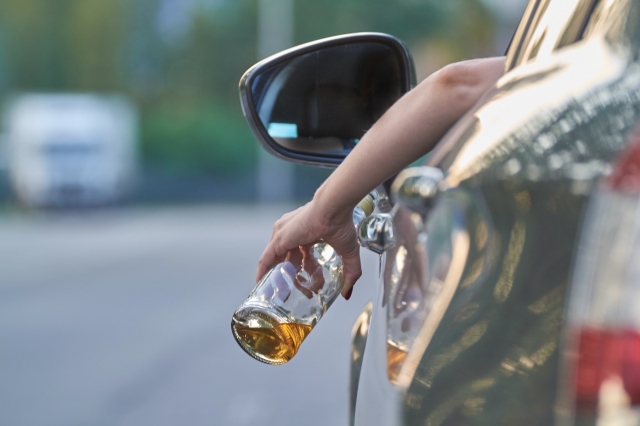Getting hit by a drunk driver is one of those moments that stops everything. You're left hurt, shaken, and dealing with a situation you never asked for. Between the shock, the questions from police, and the pain that may not show up right away, it's easy to feel overwhelmed. The hardest part? Knowing that someone else's careless decision caused this drunk driving mess.
So, what now? How do you protect yourself and make sure the aftermath doesn't hit even harder than the crash itself? There are steps you can take right away to support your recovery and protect your claim, and they matter more than you might think.
1. Call 911 and Report the Crash Immediately
The first thing you need to do is call the authorities right there at the scene. Even if the damage seems minor or you're not sure how hurt you are, involving the police creates a crucial official record. When the responding officer arrives, they'll document the accident, check for signs of impairment, and possibly perform a field sobriety or breathalyzer test on the other driver to measure their blood alcohol concentration.
This report becomes a key piece of evidence in your personal injury lawsuit. Without it, the other party might claim the drunk driving accident never happened or deny being intoxicated. So, make sure to cooperate fully, give a clear statement, and ask how to access a copy of the crash report later.
2. Gather Evidence Before It Disappears
Once you've ensured emergency services are on the way, start collecting your own evidence if you're physically able to do so. Take photos and videos of everything: vehicle damage, road conditions, tire marks, your injuries, the other driver's license plate, and even their behavior or speech if you suspect alcohol was involved.
Eyewitness statements also matter. Ask nearby people for their names and contact information. Their accounts could help confirm that the other driver was swerving, speeding, or acting erratically before the crash. Time is critical here because skid marks fade, vehicles are towed, and people move on quickly.
At this stage, it's smart to start thinking ahead about building your case. If things escalate, you'll need professional legal support to explore your legal options. Reaching out to a car accident lawyer early on ensures your evidence is preserved correctly and your claim is handled with experience.

3. Seek Medical Attention Even if You Feel Fine
Adrenaline can trick you into thinking you're not injured. But days later, you might start feeling neck pain, dizziness, headaches, or soreness that wasn't obvious right away. Delayed symptoms are common in crash victims, especially those hit at high speeds or in rear-end collisions.
Go to the ER or urgent care immediately after the drunk driving accident, even if you think you're okay. Getting evaluated by a doctor not only protects your health but also creates a medical record that ties your injuries to the accident. This documentation is essential for your claim. If you wait too long, the other driver's insurance company might argue that your injuries came from something else.
Also, follow up with your doctor regularly and don't skip any appointments regarding your car accident pain management. Gaps in treatment can weaken your claim and raise doubts about the severity of your injuries.
4. Avoid Talking to the Other Driver's Insurance Company
Soon after the drunk driving accident, the other driver's insurance company may call you. They might act friendly and tell you they just want a quick statement “to move things along.” But make no mistake, this is a strategic move. They're looking for anything they can use to shift the blame or reduce the value of your insurance claim.
Don't give a recorded statement, don't discuss your injuries, and don't sign anything. You're not obligated to talk to them directly. Refer all communication to your legal representative. Insurance adjusters are trained to protect their company's bottom line, not your recovery.
If they offer you a fast settlement, it's usually far lower than what your case is worth. You could end up covering future medical expenses out of pocket if you accept it too soon. Protect yourself by letting your personal injury lawyer or team of car accident lawyers handle all interactions.
5. Keep Track of Every Expense Related to the Crash
Accidents cost more than just vehicle repairs. Think about your medical bills, physical therapy, missed wages, transportation to appointments, ongoing medical care, and even emotional stress. These all count toward the value of your claim, but only if you can prove them.
Start a dedicated file or digital folder and save every receipt, invoice, and doctor's note. Write down the days you missed work, how the car crash injury affected your daily routine, and any pain or discomfort you're still experiencing. Keeping detailed notes makes it easier to show the full impact of the crash, something a general estimate can't do.
Also, track non-financial damages like emotional trauma or loss of enjoyment in life. These are harder to quantify but still legitimate parts of your claim, especially in DUI-related (Driving under the influence) crashes, where punitive damages may be involved.
Key Takeaway
After getting hit by a drunk driver, what you do next matters a lot. Acting quickly, protecting your records, and avoiding mistakes can make the difference between a denied claim and a full recovery. You don't need to go through it alone. The right legal assistance can turn a painful experience into a path forward that brings relief, closure, and real accountability.






